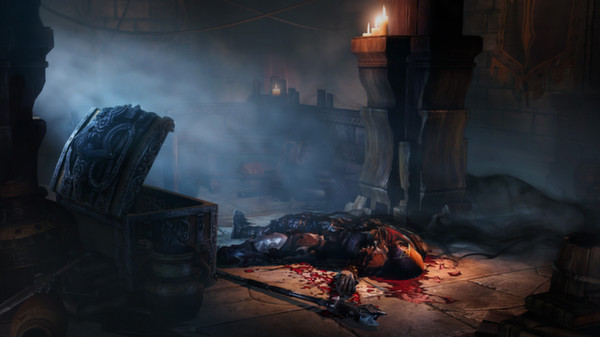Dark Souls for Beginners.
You’ll struggle to find one solitary article on the entire internet concerning Lords of the Fallen that doesn’t mention Dark Souls within its opening paragraph. This is because Lords of the Fallen essentially is Dark Souls if it was set within your typical action-RPG fantasy universe, where men holding improbably large weapons are commonplace and Road Warrior-esque shoulder pads are totally in fashion.
Lords of the Fallen is the first game to be crafted in the mold of FromSoftware’s unforgivably difficult RPG series. Whereas other developers have borrowed from that franchise's nigh-on perfect mechanics before, never have they done so as liberally as Deck13 Interactive has here, though this isn’t a simple cut-‘n’-paste job; Deck13 has made some changes to the Souls formula, which are decidedly hit and miss.
The first notable difference between the two games is the way in which Lords of the Fallen delivers its plot. Foregoing the obtuseness and heavy reliance upon lore that made the worlds of the Souls series so engrossing, LotF instead opts to lay all its cards on the table immediately. The game places you in the shoes of Harkyn, a very irritable, very bald man with unpleasant facial tattoos awarded to him for his “many sins,” as he seeks redemption for his crimes by laying to rest an army of gods called the Rhogar who are waging war on the human realm. Alongside your mentor Kaslo, you’re tasked with traveling to the demon realm in order to stop the gods from making a big mess of things.
I find that fantasy storytelling oscillates wildly between engrossingly otherworldly and Tolkien-aping dirge, but Lords of the Fallen’s plot is neither. Instead it resides within a safe middle ground which isn’t distractingly terrible nor particularly exciting. Harkyn is a serviceable protagonist and at least makes for a more likeable anti-hero than Kratos, who he bears more than a passing resemblance to, but he’s also much less interesting. He’s a gravelly voice and a shiny head—nothing more, nothing less.
The “defeat the gross monsters, save the world” trope is obviously an endlessly repeated one, but Lords of the Fallen could have differentiated itself from its peers with the dialogue you can have with the people you meet throughout the world. Despite being granted a dialogue tree every time you converse with someone, the game never made it abundantly clear that the conversations I held with its NPCs would have any impact on the game’s story. It was only later in the game that I discovered this was the case, and not informing the player of such a mechanic is an odd design given that Lords of the Fallen is so up front about all of its other nooks and crannies.
But while its handling of its story is completely different compared to the way FromSoftware conveys the plot and mythology of the Souls series, its gameplay is thoroughly familiar. Like Dark Souls, the four shoulder buttons of your controller (the mouse-and-keyboard scheme is also an option if you’re playing on PC) are used to attack and defend, with the right-hand side used to deal out light and heavy attacks, while the left-hand side is used to attack with a two-handed weapon, defend if you are in possession of a shield, or shoot using your Gauntlet. The Gauntlet is a shotgun-esque weapon that isn’t really befitting of the style of the game, firing out magical bullets that can eventually take out a crowd of enemies. It’s fun to use, though, so its inclusion can be forgiven despite it not meshing with the game’s overall tone.
The pacing of the combat will be immediately recognizable to those who have ever experienced a Souls game, though it is decidedly more forgiving. Each enemy can pose a sizeable threat if you aren’t on your game, with you not being able to simply hack-'n'-slash your way through armies of monsters. Instead you must cautiously approach them, learn their attack patterns, and figure out how to best them while taking as little damage as possible.
Whereas a skilled Souls player could effectively parry, dodge roll, and block to ensure that they’d often take no damage whatsoever, in Lords of the Fallen you’re practically expected to take some form of damage from the more difficult enemies. The key to excelling in combat is to successfully manage damage trade-offs, ensuring that your enemies don’t sneak in a big attack that will cripple your health meter. You only have a handful of health potions to keep you going until you reach a checkpoint, where they will immediately be restored, and while being killed is nowhere near as depressing as it in the Souls games thanks to more frequent and obvious checkpoints, you’ll still be forced to retrace your steps in order to pick up the experience points that are dropped once you have fallen.
Once you understand that taking damage is inevitable in Lords of the Fallen rather than unavoidable, you’ll begin to approach battles with enemies differently. While you won’t want to be on the receiving end of a huge blow to the head from an unnecessarily large hammer, you’ll learn to take light attacks in your stride. This mechanic is made more apparent when you realize that you can hold down the right trigger for a charged heavy attack, which can deal a hugely significant amount of damage but will leave you vulnerable to any attacks for a period of time. You also have magic attacks that prove to be immensely useful, with one option in particular allowing you to spawn a fiery clone of yourself that enemies will attack. This makes it easy for you to skulk up behind them and deal a killing blow.
Similarly to Souls, the weaponry and equipment you carry also has an effect on your movement and attack speed. Light armor and weaponry such as daggers will see you able to more efficiently roll past enemies and lay in a few quick, sharp jabs whilst being forgiving on your stamina meter. Heavy armor and weaponry will basically turn you into a human tank, taking punishment whilst slowly dealing out crippling amounts of damage.
The most positive point to make about Lords of the Fallen’s combat is that it has more in common with the first Dark Souls game than it does the second. Whereas in the first Dark Souls the game was punishing by design and didn’t throw a bunch of enemies at you in order to make you suffer, in Dark Souls 2 you were often overwhelmed by waves upon waves of baddies that sometimes made the game a battle of attrition over a game of skill. In Lords of the Fallen you’ll only find yourself facing a few enemies at a time, which places an emphasis upon tacticality in combat rather than persistence.
Unfortunately, combat is much more laborious during the game’s boss battles. Each boss is as repetitive as the last, equipped with a huge health bar that gives the illusion of difficulty rather than being actually difficult. I frequently found myself succumbing to a boss out of pure boredom, unable to maintain my attention for long enough to keep a track of its attack patterns. It doesn’t help that mostly all of them are rather forgettable to look at.
In terms of visuals Lords of the Fallen doesn’t exactly excel in any particular category, but it is capable of looking pretty and is helped considerably by a wonderful orchestral score. There’s no setting here that will linger long in the memory after you’ve put the controller down, but it does the job even if it does feel a little uninspired, particularly in the enemy design. The aforementioned boss battles would perhaps have been more bearable had the bosses themselves looked up to scratch, but they mainly fall in the “big and a bit nasty-looking” category that places them more in line with the enemies thrown in Diablo III than the imaginative monsters conjured up in Dark Souls.
I also experienced a few performance issues during my time with the game, though this review has been penned before Deck 13 issue a big 5GB day one patch that seems like it will rectify a number of these problems. The game crashed on me a couple of times which, as always, proved to be rather irritating, and I also found the frame rate to stutter occasionally. It was nothing too off-putting, but it’s noteworthy nonetheless. There was also an issue with the second boss in the game where he stood around aimlessly following one of his attacks and allowed me to lay into him without mercy, but given the repetitive nature of these battles this was quite the saving grace.
Lords of the Fallen will probably annoy just as many Dark Souls fans as it pleases. While it can be recommended to fans of FromSoftware’s series by virtue of its combat system, which places its own spin on top of the Souls franchise, it often feels like you’re simply playing a poor man’s version of a classic game. To those who are looking for another action-RPG fix prior to the release of Bloodborne and can overlook LotF’s derivative nature, then it’s worth a shot. For everyone else, though, there are plenty more games releasing just around the corner to warrant you overlooking this one.
-
The combat system builds upon the foundations laid by Dark Souls
-
Great orchestral score
-
A more easily understood version of Dark Souls...
-
...but that's not necessarily good thing
-
Far less interesting than Dark Souls
-
Bland story
-
Bland characters
Lords of the Fallen
-
Lords of the Fallen #1
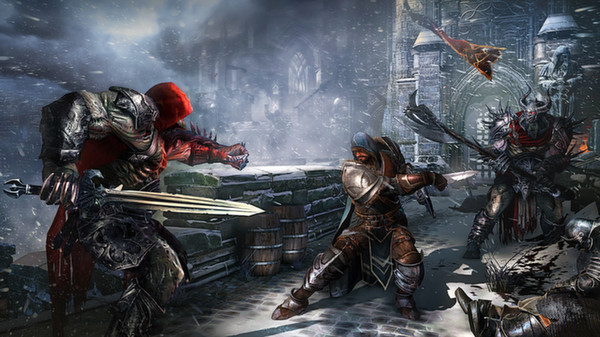
-
Lords of the Fallen #2
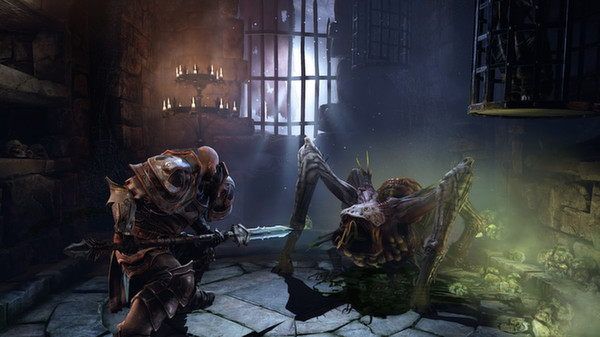
-
Lords of the Fallen #3
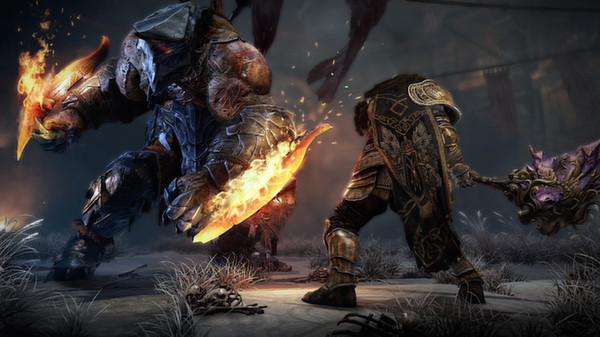
-
Lords of the Fallen #4
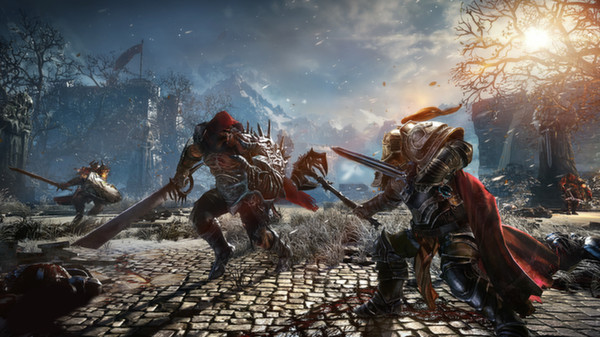
-
Lords of the Fallen #5
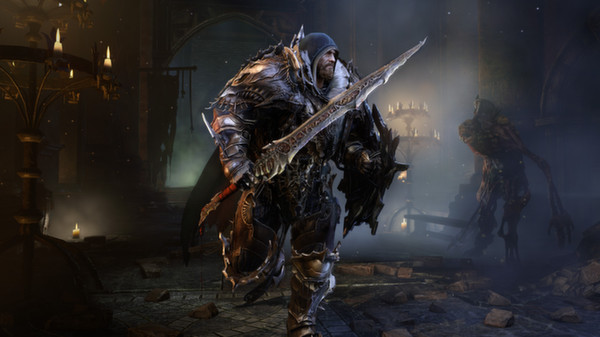
-
Lords of the Fallen #6
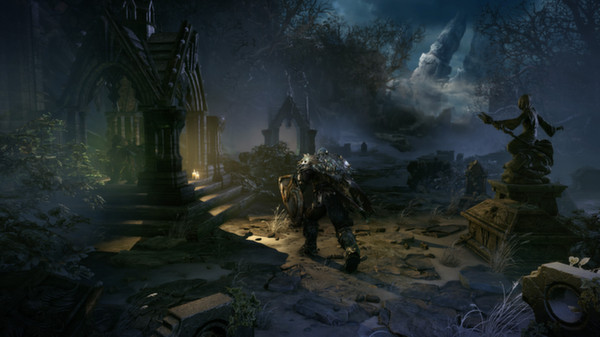
-
Lords of the Fallen #7
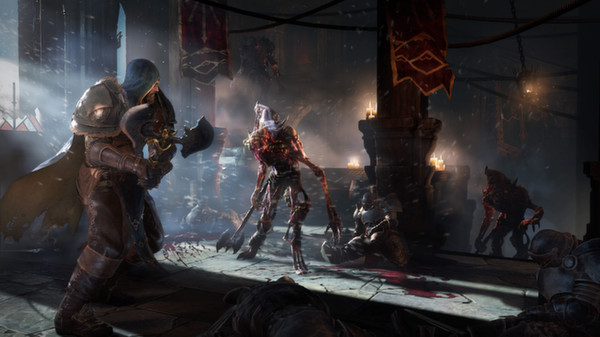
-
Lords of the Fallen #8
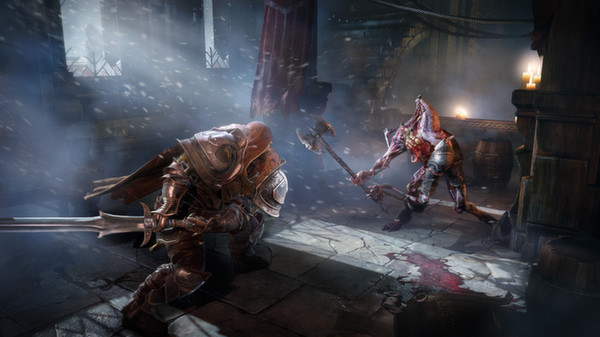
-
Lords of the Fallen #9
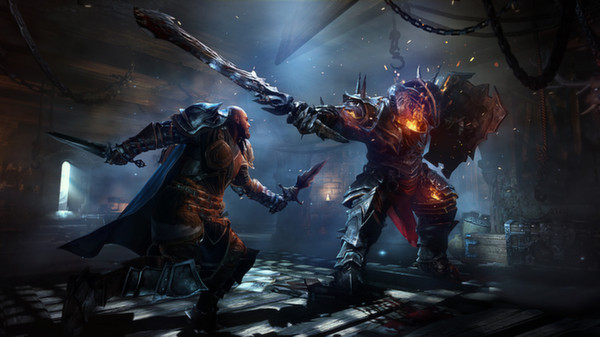
-
Lords of the Fallen #10
